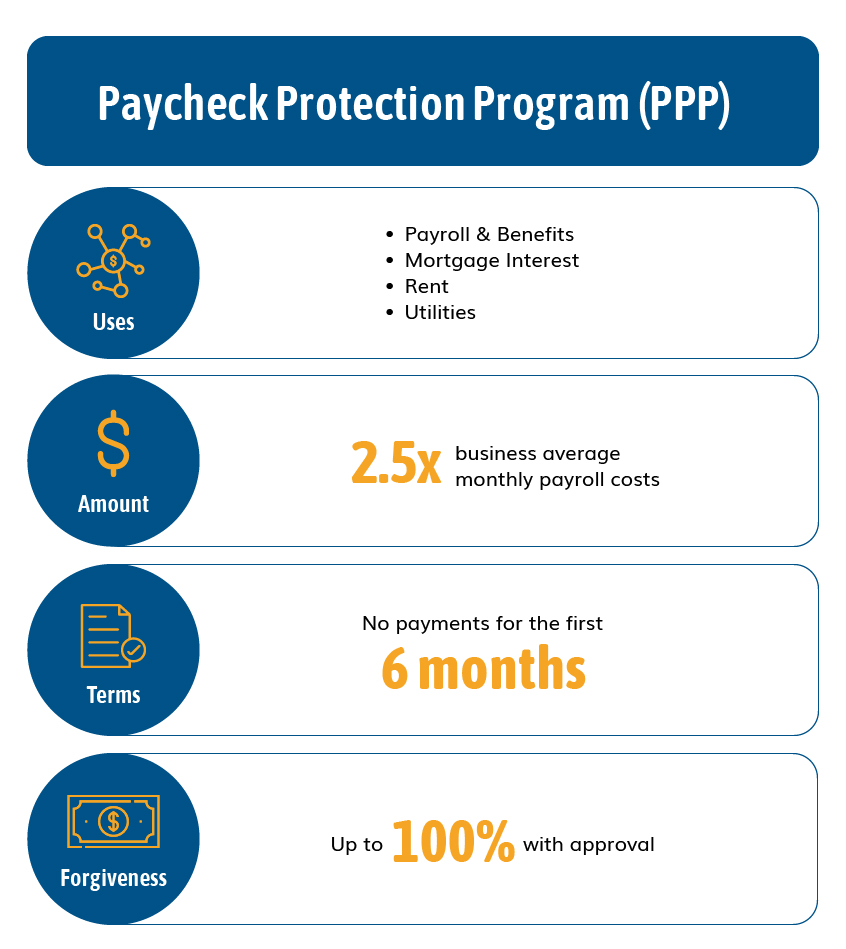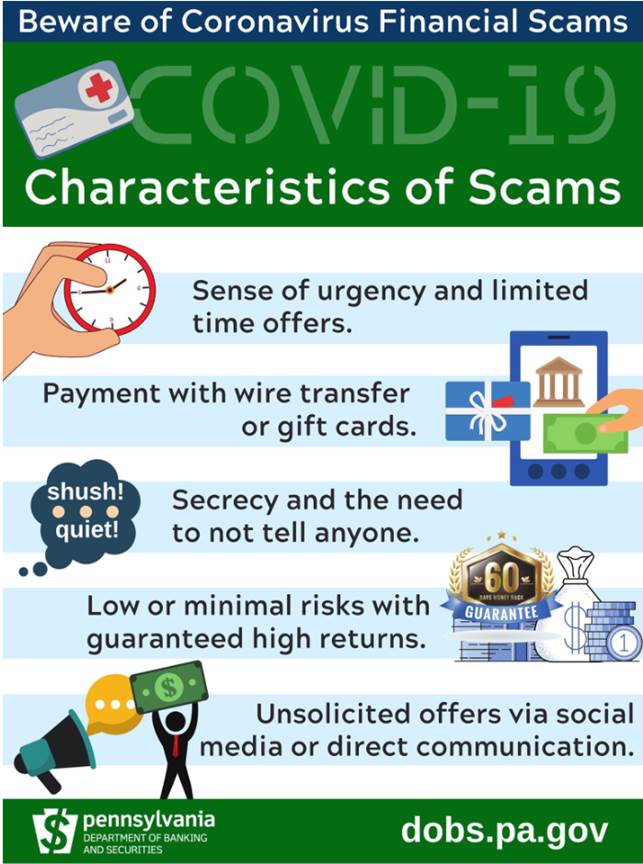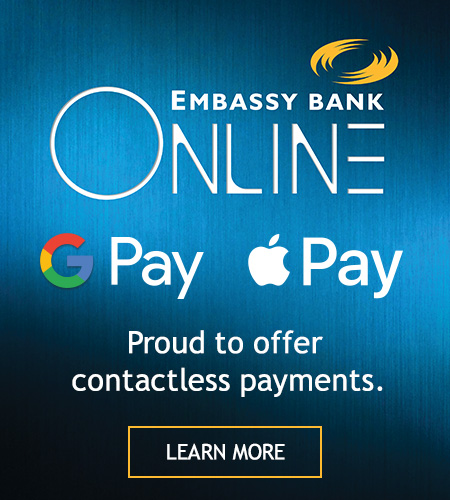Customer Service: 610-882-8800
Routing Number: 031318716
Paycheck Protection Program (PPP) Established to Assist Small Businesses during COVID-19
April 6, 2020
Please Note:
There has been an update to the Paycheck Protection Program as of April 24, 2020. Click here for details.
The federal government has dedicated over $350 billion to The Coronavirus Aid, Relief, and Economic Security (CARES) Act, in order to help prevent workers from losing their jobs and small businesses from going under due to economic losses caused by the COVID-19 pandemic through the Paycheck Protection Program. We want you to know that Embassy Bank is committed to helping our small business customers, and we recommend you contact your Embassy Bank commercial loan officer directly.
An overview of the program can be found below.

Applying for the PPP:
It is our recommendation that you have the following items ready for when the application process begins:
- 2019 IRS Form 941 + 940's for the full year (Employer's Quarterly Federal Income Tax Return)
- A detailed summary of your January 2019 through March 2020 payroll expenses
What To Do Next:
This program is evolving. We encourage you to act now and contact your existing Embassy Bank commercial loan officer directly, or call us at 610-882-8800. We are working diligently to understand the documentation requirements and application process thoroughly, so we can quickly help you apply for these loans.
The program funds are limited. Embassy Bank does not guarantee that applications will be processed and submitted before the program funding is no longer available.
Thank you for your patience as our team ramps up to implement this program so we are able to help support you, your business, and your employees.
David M. Lobach, Jr.
Chairman, President and CEO
Embassy Bank for the Lehigh Valley
Additional Information Can Be Found at the Following Links:
SBA Paycheck Protection Program Website
Treasury Paycheck Protection Program Website
TIPS & BEST PRACTICES
How To Protect Yourself from Coronavirus Financial Scams
A message from the PA Department of Banking and Securities for ways to be safe from opportunists who will try and take advantage of them during major events such as the current COVID-19 situation:
"Consumers should be on alert for increased fraud during major events such as the outbreak of COVID-19," said Acting Secretary Richard Vague. "Scams are becoming increasingly more sophisticated and scam artists are taking advantage of people, making every attempt to separate you from your hard-earned money."

Coronavirus - Beyond Health and Wellness
Cybercriminals like to take advantage of incidents such as the coronavirus threat to entice people to click on phishing emails and conduct social engineering attacks. Cybercriminals may send malware‐laced emails with attachments and links to websites that can harvest your private information and passwords to exploit your personal and corporate accounts. It is important to remain diligent in reviewing emails to ensure they are safe.

